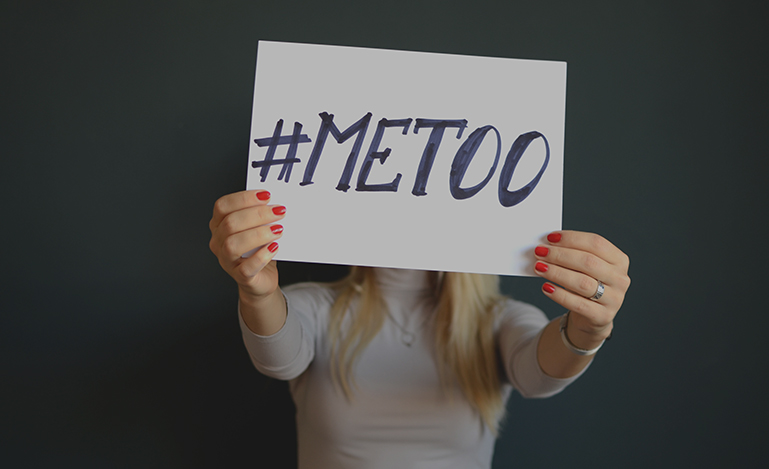What will MeToo cost you?
Gender-based harassment is rarely about sex. It’s almost always about power. As a result, it should come as no surprise that law firms are not immune to the global reckoning that began last October.

This year, for example, Borden Ladner Gervais LLP included sexual harassment on its list of the top legal risks for businesses. Law firms are businesses too, and can suffer from some of the same issues with power dynamics.
Actions from the distant past are being judged and measured against today’s yardstick. Women coming forward are believed and honoured for outing inappropriate behaviours. The tides have turned. This is a global phenomenon.
While stories of dethroned lawyers have not yet made headlines, everything from frantic whispers to ousters are happening at partnership tables. Those with skeletons in their closets are panicking as they realize that others now see them as immense liabilities. No doubt they are calculating their options.
It took no fewer than seven women, mostly white – including two very famous movie stars – to expose the sexual abuse perpetrated by American film producer Harvey Weinstein over several decades.
Top producers like Weinstein once wore a cloak of untouchability. They had power and monetized value. In stark contrast, the complainants were young, aspiring stars at the time of the abuse.
Sexual harassment and gender-based violence are about exerting power and dominance over someone who has less power. Whether conscious or subconscious, these acts are intended to undermine the target’s self-worth. Harassing behaviours can range from sexist, racist, homophobic “jokes” and micro-aggressions to gaslighting, physical violence and sexual assault. All of these behaviors can and do happen within the legal profession – perhaps even in your own office – victimizing employees and creating toxic work environments. (For a more in-depth look at workplace harassment, I highly recommend the CBA-WLF podcast, “Not Just a Bystander.”)
It used to be that top-billing lawyers weren’t bound by the same rules as others. However, that culture is changing – and fast. Associates aren’t willing to put up and shut up any more. Nor are law firms, disciplinary panels, human rights tribunals or clients.
Now more than ever, law firms need to take stock and decide what kind of firm they want to be, now and in the future. Do you want to retain top talent? Do you want to attract and keep clients who demand strong harassment policies? Do you want to protect yourself and your firm from a harassment suit or human rights complaint that could tarnish the firm’s reputation and implicate all partners for failing to act?
If you bully or harass your colleagues and employees, seek help from a professional. But if you see the problem and want to be part of the solution, here are a few tips for how to support your colleagues and create a safe, harassment-free workplace:
- Begin as you wish to go on: Each of us is responsible for creating the workplace environment we want to work in. Establishing a clear anti-harassment policy and process is essential. Many organizations have sample policies online. Once you have one in place, make sure all staff and partners are familiar with it.
- Check for power imbalances: When speaking to colleagues, be conscious of the ways in which each of you has power or vulnerability. If you’re not sure whether something is inappropriate to say or do, Google it. Do not ask someone with less seniority than you, because they may not have the ability (read: power) to answer you honestly. People laugh when they’re uncomfortable, so don’t mistake laughter for consent. Consider these two questions: Would you say it to a colleague of your own gender? Would you say it to your grandmother or a child? If the answer to either of these questions is no, then perhaps reconsider.
- Respond swiftly and strongly: Research on workplace harassment has shown that the best way to prevent it is to reject any offending behaviours swiftly and firmly – such as by immediately reporting an occurrence to human resources, calling out a colleague in the moment, or speaking to them privately after the fact. Saying nothing condones the behaviour in the eyes of both the perpetrator and the law.
- Offer support and respect: If a colleague or staff member confides in you, support them and respect their wishes. The objective of harassers is to exert their dominance, so it’s important that victims maintain control over their own process. Feeling heard and validated may be enough. Support them even if they do not want to lodge a complaint.
Above all, recognize that not all that glitters is gold: As a profession, we need to reevaluate our values. If we continue to allow top producers to harass with impunity, can we claim to have integrity? In 2018, inappropriate big billers may be more a liability than an asset.


